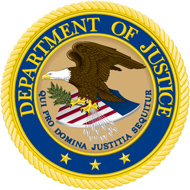ISPs Agree Voluntary Pirate Site Blocks
samedi 11 octobre 2014 à 19:28 When it comes to pirate site blockades, Denmark is somewhat of a pioneer. Way back in 2006 in a case initiated by the IFPI, a court ordered ISP Tele2 to block Russian MP3 site, AllofMP3.
When it comes to pirate site blockades, Denmark is somewhat of a pioneer. Way back in 2006 in a case initiated by the IFPI, a court ordered ISP Tele2 to block Russian MP3 site, AllofMP3.
Another case ended in victory for the music group in 2008, with a blockade of The Pirate Bay the end result.
In 2011 the music industry looked to expand its list of blocked domains by using anti-piracy group Rettigheds Alliancen (Rights Alliance) to attack US-based streaming service Grooveshark via the courts. A matter of months later the coalition of 30 rightsholders prevailed in a case in which Grooveshark took no part.
While the entertainment industries are now well capable of obtaining blocking injunctions against pirate sites, each action has to be targeted at a specific service provider. That means that while an injunction might be issued against one ISP, rival ISPs are free to carry on providing access.
This week, however, all that changed.
Following negotiations with anti-piracy group Rights Alliance, the telecommunications industry in Denmark has signed a Code of Conduct which will ensure that blockades are put in place country-wide.
The agreement ensures that when a court issues an injunction against a single ISP ordering it to implement DNS blocking against a ‘pirate’ site, within days all rival ISPs will voluntarily implement a similar blockade.
Speaking for the telecoms sector, Jakob Willer of Tele Industrien said that industry-wide regulation will support the growth of authorized services.
“In the telecommunications industry, we find it important to ensure rapid and effective implementation of regulatory decisions across the entire industry. It is also important to ensure the development of legitimate online services, where consumers can find what they are looking for and the artists can get paid for what they have created,” Willer said.
Rights Alliance chief Maria Fredenslund is pleased with the agreement which will assist her group and its members to more easily block ‘pirate’ sites at the ISP level. Under the Code of Conduct, ISPs will block domains within seven days of another provider being issued with an injunction.
Commenting on the agreement, Minister for Culture Marianne Jelved said that it’s important for rightsholders to have tools at their disposal when they feel that their music, movies and books are being used online without their permission.
“I am glad that the copyright holders and telecommunications companies in this area are working together to ensure that we have the most creative and legal digital content. The new Code of Conduct is an important step in this effort,” Jelved said.
The Code of Conduct also allows for expanded blocking if ‘pirate’ sites move to new IP addresses or domains. However, the code states that should wrongful blocking occur due to rightsholder error, then the rightsholders will be liable to the ISPs for any financial costs incurred.
Source: TorrentFreak, for the latest info on copyright, file-sharing and anonymous VPN services.




